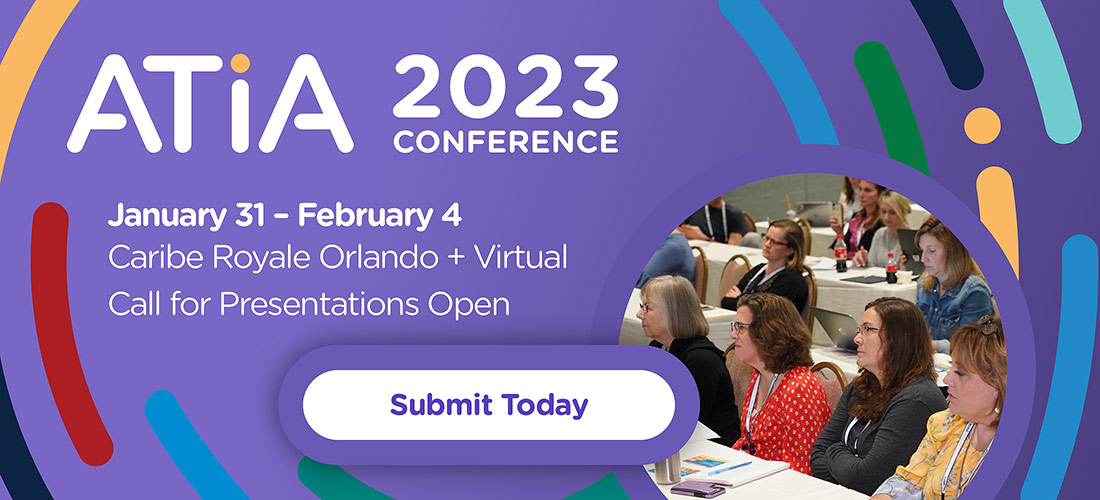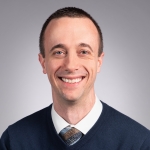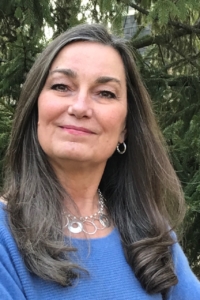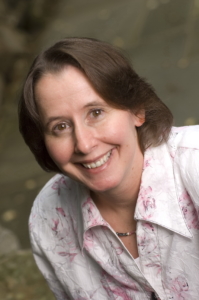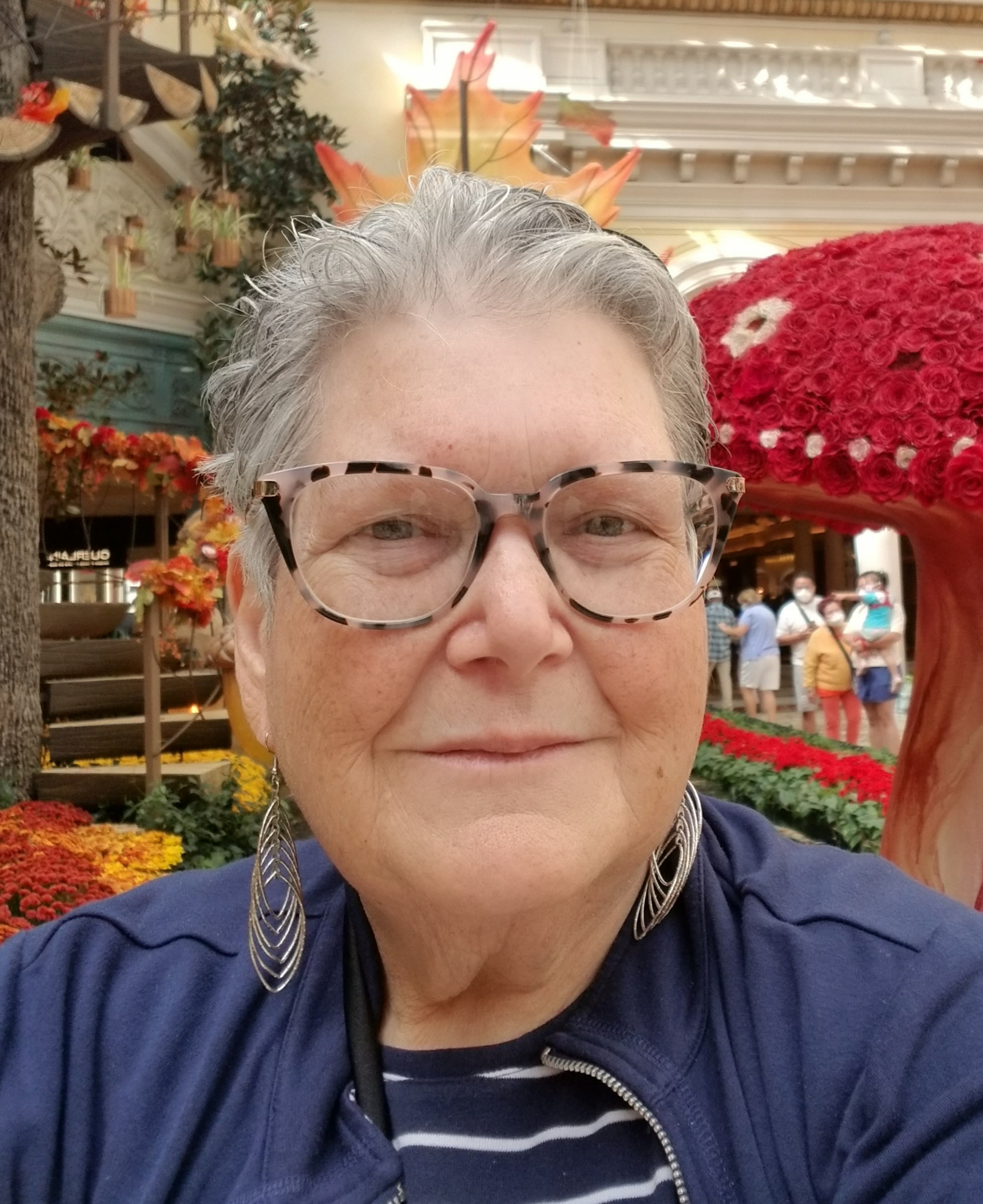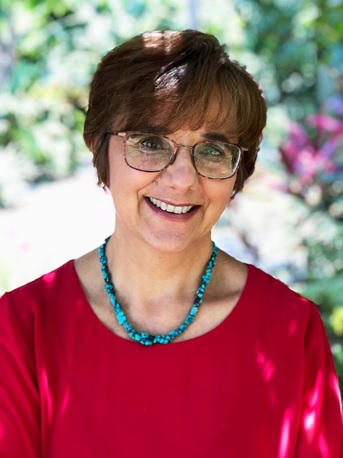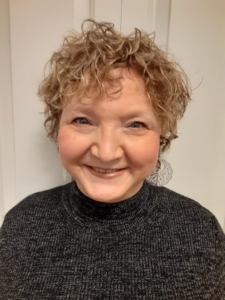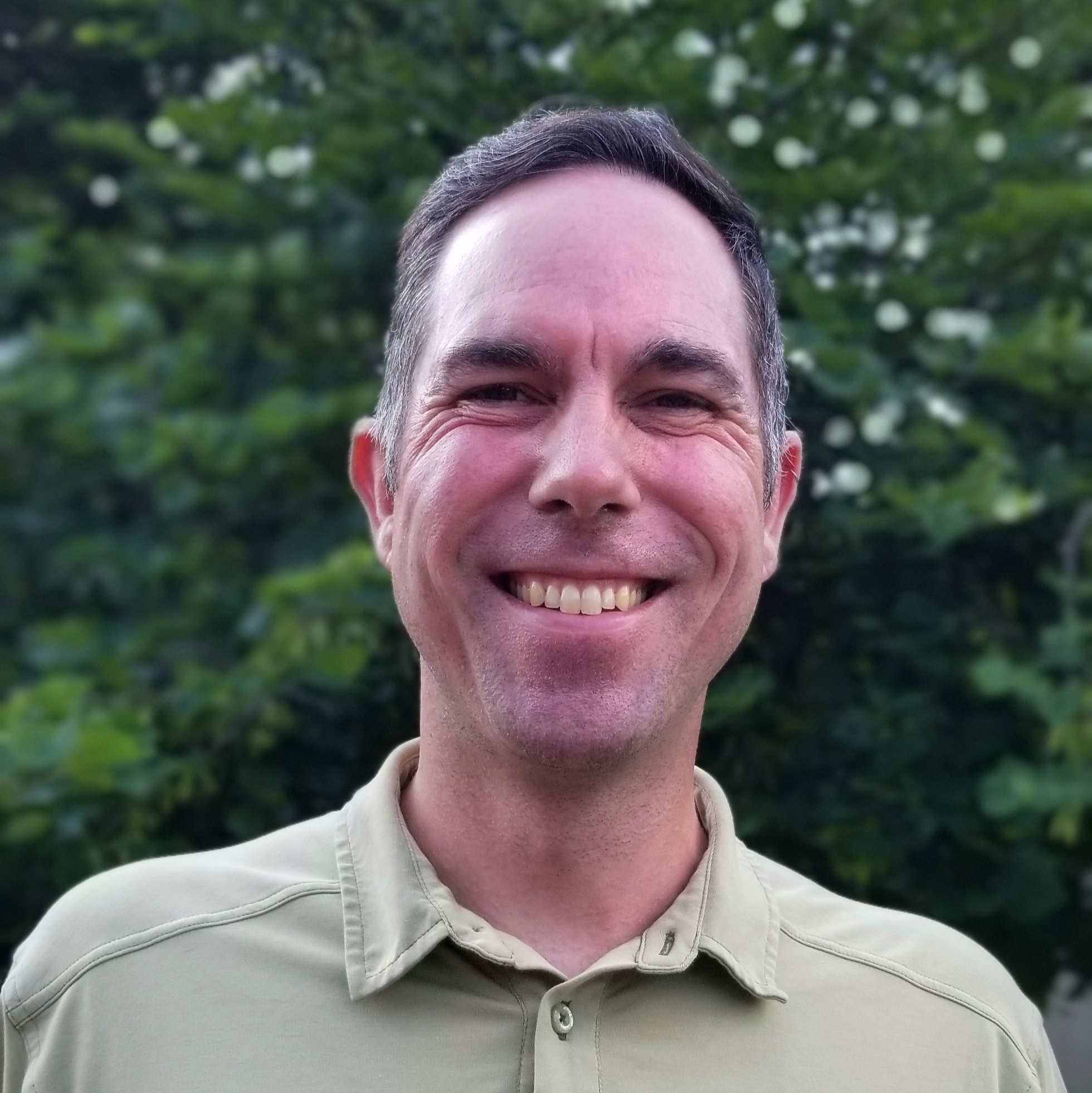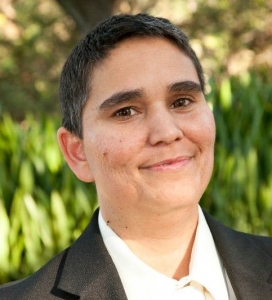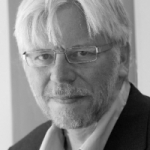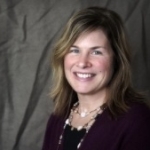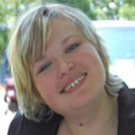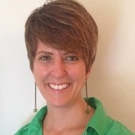ATIA 2023 Strand Advisors and Partners:
The ATIA 2023 strand advisors are each recognized experts in their respective session strands. The strand advisors play a critical role in curating the conference education program and ensuring each education session meets the diverse needs of conference attendees.
AT for Physical Access and Participation
Supporting Partner:
William E. Janes, OTD, MSCI, OTR/L; Assistant Research Professor, Department of Occupational Therapy, University of Missouri; Representing the American Occupational Therapy Association (AOTA)
William Janes, OTD, MSCI, OTR/L is an occupational therapist and Assistant Professor at the University of Missouri. He has served in numerous volunteer leadership roles within AOTA and RESNA. He currently serves on the Editorial Board of ATIA’s journal, Assistive Technology Outcomes and Benefits (ATOB). Dr. Janes’ work focuses on applications of consumer technologies to address the everyday needs of people living with disabilities. His current projects include a multi-site consortium for GoBabyGo data collection, an interdisciplinary makerspace devoted to inclusively designed assistive technologies, and implementing home-based and wearable sensors to target multidisciplinary care in ALS.
Judith Schoonover, MEd, OTR/L, ATP, FAOTA, AT Consultant; Representing Early Intervention & School Special Interest Section, American Occupational Therapy Association (AOTA)
Judith Schoonover, MEd, OTR/L, ATP, FAOTA is an occupational therapist and former elementary school teacher. She is certified as an assistive technology professional (ATP) by RESNA and was a founding member of the Loudoun County Public Schools Assistive Technology Team. Judith has provided direct services in schools for more than 44 years and is a nationally and internationally recognized speaker presenting on the topics of school-based occupational therapy, transition, literacy, and assistive technology. She has authored numerous articles, and chapters in Early Childhood: Occupational Therapy Services for Children Birth to Five, Occupational Therapy for Children (6th-8th eds.), Best Practices in School Occupational Therapy, Assistive Technologies, and Occupational Therapy and Transitions: A Cross-System Perspective. She participated in National Association of State Directors of Special Education (NASDSE) workgroups addressing the response to intervention (RTI), transition, and virtual schools. Currently, Judith represents AOTA on the National Joint Committee (NJC) for the Communication Needs of Persons with Severe Disabilities and serves on the editorial board of the Assistive Technology Outcomes and Benefits (ATOB) Journal.
Therese Willkomm, Ph.D., Director of Assistive Technology in New Hampshire, Institute on Disability at the University of New Hampshire (UNH); Representing RESNA
Therese Willkomm, PhD, is the Director of New Hampshire’s State Assistive Technology Program with the Institute on Disability at the University of New Hampshire (UNH) Dr. Willkomm is a clinical associate professor emeritus in the Department of Occupational Therapy. She developed, coordinated, and taught the assistive technology courses for the Graduate Certificate Program in Assistive Technology for 23 years. She is known nationally and internationally for her innovative strategies for creating solutions in minutes. She has designed and fabricated over two thousand solutions for individuals with disabilities. She has presented her work in 42 states, ten foreign countries, and three U.S. Territories and has authored over 22 publications including her recent book Assistive Technology Solutions in Minutes Book 3: – “Make Stuff and Love People”.
Contact the AT for Physical Access and Participation Team at ATPAPStrand@atia.org.
Augmentative and Alternative Communication
Supporting Partner:
Amy Goldman, President, USSAAC
Amy S. Goldman is currently President of the US Society for AAC (USSAAC). She previously was Technical Assistance Specialist with the national AT3 Center, and the co-executive director of the Institute on Disabilities, University Center of Excellence in Developmental Disabilities at Temple University. A licensed speech-language pathologist, Amy’s career has focused on the area of augmentative and alternative communication (AAC) and especially, access to AAC for people with intellectual and developmental disabilities. Amy is a member of the National Joint Committee for the Communication Needs of Persons with Severe Disabilities (“NJC”) representing USSAAC.
Angela Standridge, Director, Texas Technology Access Program; Representing ASHA AAC SIG 12
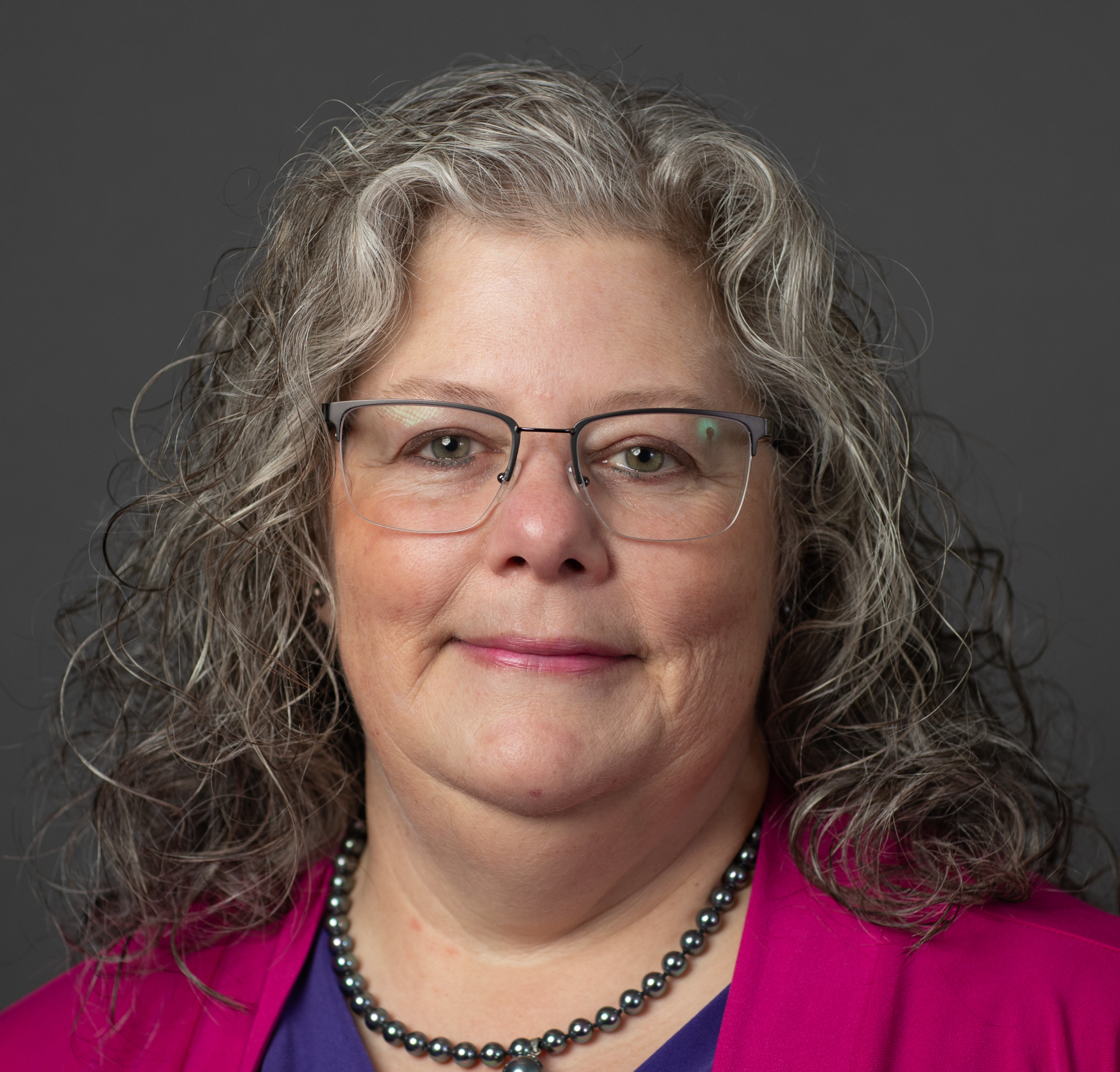 Angela Standridge, M.A., CCC-SLP is a speech language pathologist with over 37 years of experience in assistive technology with an emphasis in augmentative and alternative communication. She has presented at national and international conferees on the aforementioned topics. She is currently the Chair for the ASHA Special Interest Group 12 (AAC) Coordinating Committee. She has worked in public schools, private practice, private industry, as a consultant at Region 4 Education Service Center, and is currently the Director of the Texas Technology Access Program.
Angela Standridge, M.A., CCC-SLP is a speech language pathologist with over 37 years of experience in assistive technology with an emphasis in augmentative and alternative communication. She has presented at national and international conferees on the aforementioned topics. She is currently the Chair for the ASHA Special Interest Group 12 (AAC) Coordinating Committee. She has worked in public schools, private practice, private industry, as a consultant at Region 4 Education Service Center, and is currently the Director of the Texas Technology Access Program.
Carole Zangari, Professor & Executive Director, NSU CARD Satellite, Nova Southeastern University
Dr. Carole Zangari is a Professor in the Speech Language Pathology department at Nova Southeastern University where she teaches master’s/doctoral courses in AAC, coordinates the AAC Lab, and supports graduate student clinicians. In addition, Dr. Zangari serves as the Executive Director of the Broward satellite of the University of Miami-Nova Southeastern University Center for Autism and Related Disabilities (UM-NSU CARD). She is a frequent presenter on AAC topics at international and national conferences. Dr. Zangari is the co-editor of Practically Speaking Language, Literacy, and Academic Development for Students with AAC Needs and co-author of TELL ME: AAC in the Preschool Classroom and TELL ME Más: CAA en el Aula Preescolar. She blogs at www.PrAACticalAAC.org.
Dr. Zangari can be reached through her website or other social media venues including Twitter (@PrAACticalAAC), Facebook (www.Facebook.com/PrAACticalAAC), Pinterest (pinterest.com/AACandAT), and Instagram (@praacticalaac).
Contact the AAC Team at AACStrand@atia.org.
Education & Learning: Early Intervention – 12/Higher Education
Supporting Partner:
Kelly Fonner, Assistive/Educational Technology Consultant & Special Educator
Kelly has been a teacher, para-educator, instructional media specialist, assistive technology specialist in early education, school & university settings. She has presented in the field of AT/AAC for over 35 years across the US and internationally. Kelly has also worked for a statewide AT project, federal AT/AAC grants at universities & has been an instructor in university courses. She is a leadership member and co-author of the QIAT books. Her website is www.kellyfonner.com
Luis Pérez, Ph. D., Technical Assistance Specialist, National Center on Accessible Materials for Learning (AEM Center) at CAST, Representing the Inclusive Learning Network, International Society for Technology in Education
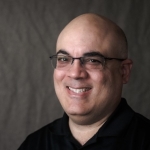 Luis Pérez is a technical assistance specialist at CAST. He holds a doctorate in special education and a master’s degree in instructional technology from the University of South Florida. Luis was recognized with an International Society for Technology in Education (ISTE) Making It Happen! Award in 2020. Other recognitions include Apple Distinguished Educator (2009) and Google Certified Innovator (2014). Luis has published three books on accessibility, mobile learning and UDL: Mobile Learning for All (Corwin Press), Dive into UDL (ISTE) and Learning on the Go (CAST Publishing).
Luis Pérez is a technical assistance specialist at CAST. He holds a doctorate in special education and a master’s degree in instructional technology from the University of South Florida. Luis was recognized with an International Society for Technology in Education (ISTE) Making It Happen! Award in 2020. Other recognitions include Apple Distinguished Educator (2009) and Google Certified Innovator (2014). Luis has published three books on accessibility, mobile learning and UDL: Mobile Learning for All (Corwin Press), Dive into UDL (ISTE) and Learning on the Go (CAST Publishing).
Carolyn P. Phillips, Co-Director of the Center for Inclusive Design & Innovation in the College of Design at Georgia Tech; Director and Principal Investigator of Tools for Life, Georgia’s AT Act Program; Representing AccessText Network

Carolyn P. Phillips is nationally recognized in the field of assistive technology and disabilities. She currently serves as the Co-Director of the Center for Inclusive Design & Innovation in the College of Design at Georgia Tech which also runs the national AccessText Network. Carolyn serves as Director and Principal Investigator of Tools for Life, Georgia’s Assistive Technology (AT) Act Program at Georgia Tech | CIDI. In this capacity, she oversees a wide range of AT projects and programs, including the National Pass It On Center. Ms. Phillips teaches a graduate class at the University of Georgia in the College of Education. She is a frequent keynote speaker at conferences and guest lecturer at other universities. She has published articles in journals, chapters in books in AT and poetry focused on living with disabilities. Carolyn has dedicated her time and energy to promoting the independence of all people, including those with disabilities through advocacy, education, assistive technology and systems change. Among other awards and recognitions, she has received the National Rehabilitation Association’s Belle Greve Award for “outstanding contributions and major positive impacts” in the disability community. The Department of Labor in Georgia also gave her the Director’s Award for “extraordinary and diligent service on behalf of people with disabilities.” She received her undergraduate degree from the University of Georgia, and her Master’s Degree from the University of Kentucky. She is currently pursuing her Ph.D. at Texas Tech University. Carolyn lives in Atlanta, Georgia.
Contact the Education/Learning Team at Education-LearningStrand@atia.org
Mainstream & Web Accessible Technologies
Mike Marotta, ATP – Inclusive Technology Evangelist
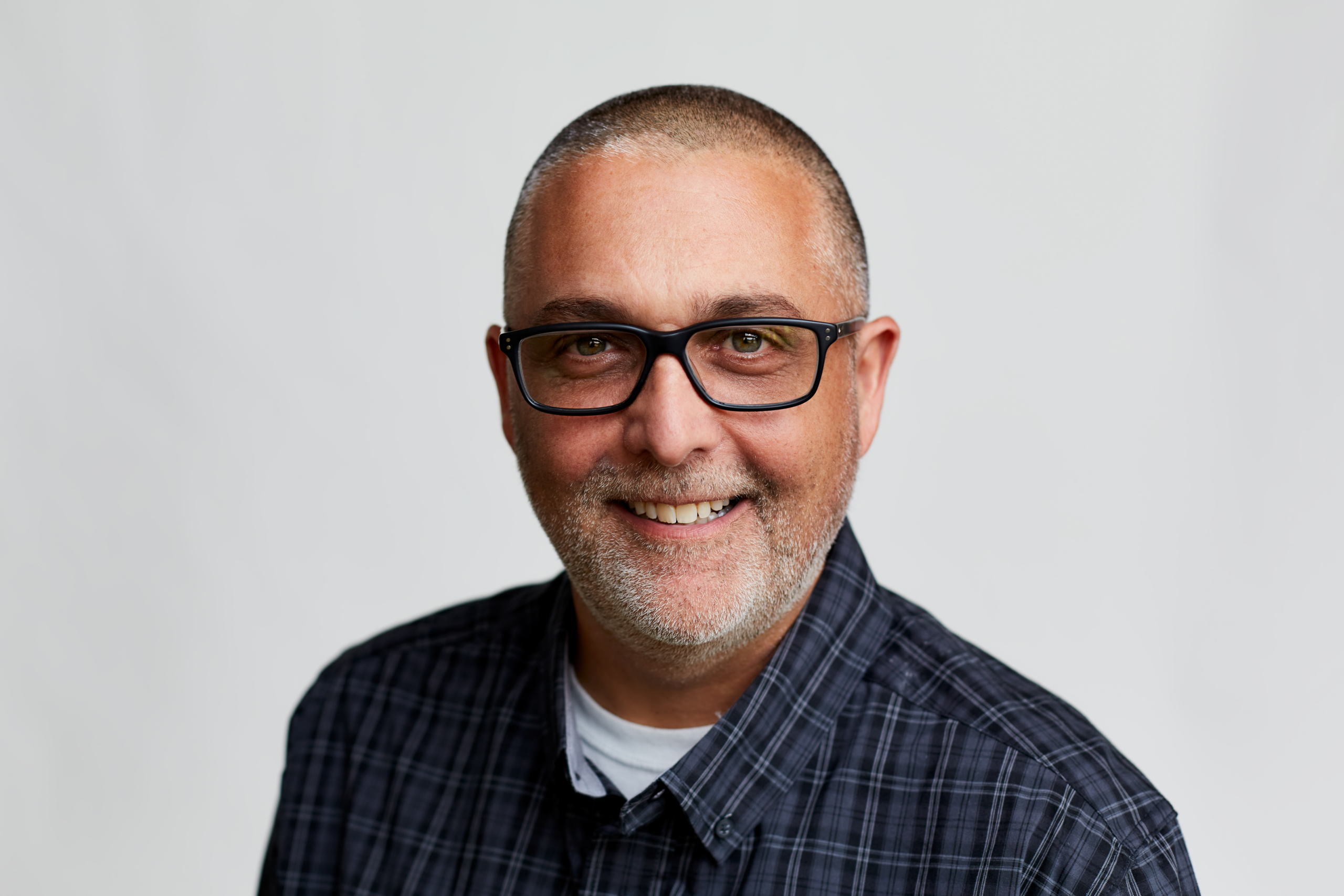
Mike is a RESNA Certified Assistive Technology Professional and the 2017 ISTE Inclusive Learning Network Outstanding Educator. Mike is a nationally and internationally recognized presenter providing practical training to professionals interested in assistive and inclusive technology. In addition, Mike is an adjunct professor at Ramapo College of New Jersey (NJ) teaching Masters level educators in Assistive Technology and Universal Design for Learning.
Mike is the Director of the Richard West Assistive Technology Advocacy Center and serves on both the CAST Accessible Educational Materials and Center on Inclusive Technology and Education Systems (CITES) Advisory Boards. Mike is also the founder of EdcampAccess NJ and co-moderator of the weekly #ATchat Twitter chat. Mike is one of the co-authors of the ISTE book Inclusive Learning 365: Edtech Strategies for Every Day of the Year. For details visit https://inclusive365.com/ For full list of financial and non-financial disclosures, visit https://mmatp.com/disclosures/
Rob Carr, Strategic Accessibility Coordinator at WebAIM
Rob Carr is the Strategic Accessibility Coordinator at WebAIM. Rob has been in the digital accessibility space since 2010. He has spent loads of time training, consulting, and learning about digital accessibility topics large and small. Rob has worked with thousands of individuals and dozens of organizations on everything from accessibility in a single PDF to integrating accessibility into organizations’ digital strategies. Rob presents at national conferences, organizes the occasional conference, and tries to be more active and less snarky on LinkedIn.
Contact the Mainstream & Web Accessible Technologies Team at MainstreamWebTechStrand@atia.org
Transition and Workplace Accessibility
Supporting Partner:
Teresa Goddard, Lead Consultant, Job Accommodation Network (JAN)
Teresa joined the JAN staff as a Program Assistant in March 2008 and joined the Motor Team as a Consultant in August 2008. As she has now transitioned to JAN’s sensory team, Teresa fields questions from employees and employers regarding their rights and responsibilities under the Americans with Disabilities Act (ADA) and assists in identifying accommodation solutions for employees with sensory impairments.
Teresa’s professional experience includes work as an Educational Speech-Language Pathologist and as an EFL instructor in Aichi Prefecture, Japan where in addition to classroom teaching, she led continuing education workshops on collaborative instructional techniques and cross-cultural understanding.
Teresa holds a bachelors degree in Speech Pathology and Audiology and a masters degree in Speech Pathology from West Virginia University’s College of Human Resources and Education. She has earned 45 hours above the masters’ level with elective course work in augmentative and alternative communication, behavior disorders, and reading. Teresa’s research interests include assistive technology and cross-cultural perspectives on disability services.
Contact the Work Accessibility Team at Transition WorkplaceStrand@atia.org.
Vision & Hearing Technologies
Supporting Partner:
Rachael Sessler Trinkowsky, Ph.D., CRC, CATIS, Technology Training and Vocational Coordinator, Lighthouse for the Blind of the Palm Beaches; Representing ACVREP
Rachael Sessler Trinkowsky, Ph.D., CRC, CATIS is the Technology Training and Vocational Coordinator for the Lighthouse for the Blind of the Palm Beaches, where she oversees services for a 5-county territory. Additionally, she is an adjunct faculty member at the University of Illinois Chicago (UIC) and the University of Massachusetts Boston (UMass). She teaches a course in the Assistive Technology Certificate Program at UIC and she has developed programs through UMass Boston to prepare professionals for the new CATIS credential through ACVREP.
Dr. Sessler Trinkowsky holds a B.A. degree in Special Education and a Masters of Health Science in Rehabilitation Counseling from the University of Florida. She has also earned an Educational Specialist and a Ph.D. from Nova Southeastern University’s College of Engineering and Computing in Computing Technology in Education. Her dissertation topic focused on accessibility awareness and practices in online learning environments.
Dr. Sessler Trinkowsky has been a Certified Rehabilitation Counselor (CRC) since 1999 and she was the recipient of the Florida Association for Education and Rehabilitation of the Blind and Visually Impaired (Florida FAER) award for Outstanding Rehabilitation Professional for the Blind Award (2017). She was honored to be a member of the Subject Matter Expert (SME) Committee for the development of the new and much-needed specialization, called Certified Assistive Technology Instructional Specialist for People with Visual Impairments (CATIS) through the Academy for Certification of Vision Rehabilitation & Education Professionals (ACVREP).
Carmelina Hollingsworth, Project Director, Resource Materials and Technology Center: Deaf/Hard of Hearing (RMTC-D/HH)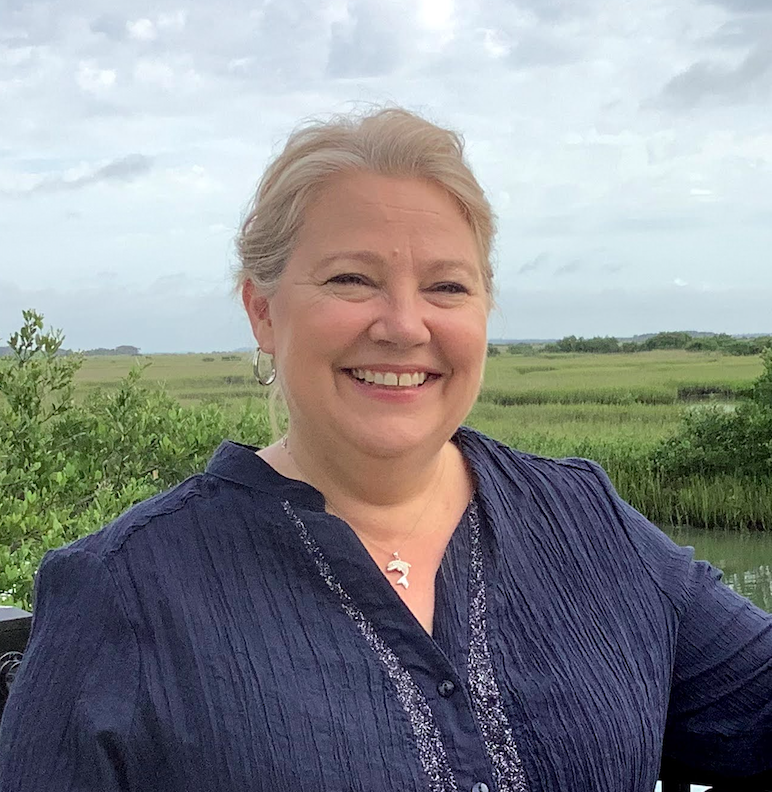
Carmelina Hollingsworth is the Director of the Resource Materials and Technology Center for the Deaf/Hard of Hearing (RMTC-D/HH) project and has enjoyed working in the field of deaf education for more than 27 years. Carmelina serves as a member of Florida’s Response to the National Deaf Agenda Team, Florida’s AIM/AT/UDL Oversight Team, Florida’s Statewide Technology Advisory Committee, and is also a member of the Florida Department of Education, Bureau of Exceptional Education (BEE) Strategic Plan Team’s committee for Best Practices in Inclusion. As the parent of a child who learns differently, she is able to view the processes within the field from both professional and personal perspectives.
Leadership
Supporting Partner:
David Banes, Director, David Banes Access and Inclusion Services UK
David Banes is Director of his company David Banes Access and Inclusion Services. Having previously led assistive technology services in Europe and the Middle East, He now works across the globe building access infrastructure from policy to practice, based upon a detailed model of the ecosystem that supports implementation.
Recent projects include the development of a response to disruptive innovation in the access industry, identifying solutions to meeting the needs of refugees with a disability, and building a business case for public investment in assistive technology, whilst supporting entrepreneurs to bring products and services to market.
David supports those working in assistive technology through a series of publications and resources, all under open license and free. These include the weekly Access and Inclusion through technology and monthly Global Symbols newsletters, the recently launched Three Minute thoughts on AT and “Voices” a magazine format dedicated to the thoughts and opinions of disabled people and those that support them.
Cynthia Curry, Director of Technical Assistance, CAST
Cynthia Curry is a Project Director at CAST. She began her career as a middle and high school science teacher, and discovered the power of assistive technology and Universal Design for Learning while a graduate student. At CAST, Cynthia directs the National Center on Accessible Educational Materials for Learning and co-directs the Center on Inclusive Technology & Education Systems. She has worked at state, local, and higher education agencies to ensure access to technology for learners with disabilities. Cynthia served as a Statewide UDL, AT, and AEM Integration Mentor for the Maine Department of Education’s 1:1 technology initiative. At the University of Southern Maine, she was a lecturer in Teacher Education and directed a U.S. Department of Education grant to merge the University’s pre-service special and general education pathways. Prior to her current position, she was Coordinator of Disability Services and an Instructional Designer at the University of New England.
Contact the Leadership Team at LeadershipStrand@atia.org.
Research
Anya Evmenova, Ph.D., Professor in the College of Education and Human Development, George Mason University; Representing Assistive Technology Outcomes and Benefits research journal (ATOB)
Anya Evmenova, Ph.D. is a professor of special education in the College of Education and Human Development at George Mason University. She teaches master and doctoral courses in assistive technology, special education, and research methods. She is an active contributor to the field of special education and assistive technology regularly publishing and presenting at national and international conferences. Design and research of technology-based interventions in academic settings is the primary focus of her work. She is currently a PI on the Stepping Up Technology Implementation project titled WEGO-RIITE: Writing Efficiently with Graphic Organizers – Responsive Instruction while Implementing Technology Effectively. Dr. Evmenova’s research interests include the use of assistive and instructional tools for improving access to general education curriculum for students with various abilities and needs, Universal Design for Learning, online teaching and learning, as well as advances in the field of single-subject/case research methods. Dr. Evmenova is Editor-in-Chief of the Assistive Technology Outcomes and Benefits research journal (ATOB).
Lori Geist, PhD, CCC-SLP is an Assistant Professor at the Center for Literacy & Disability Studies, Department of Allied Health Sciences, School of Medicine, University of North Carolina at Chapel Hill; Representing ATIA Research Committee
Lori Geist, PhD, CCC-SLP, is an assistant professor at the Center for Literacy and Disability Studies in the Department of Allied Health Sciences in the School of Medicine at the University of North Carolina at Chapel Hill. Prior to joining the research faculty at UNC, she worked in direct service, consultation, and product development, with her efforts concentrated on intervention approaches that target communication, language, and literacy outcomes for individuals with complex communication needs. Her research interests center on leveraging technology in the delivery of effective intervention. She in a lead investigator and director on multiple research projects, including Project Converse (PI), Building Bridges (co-PI) and Project Open (co-PI). Lori is a member of the ATIA Research Committee.
Contact the Research Team at ResearchStrand@atia.org.

